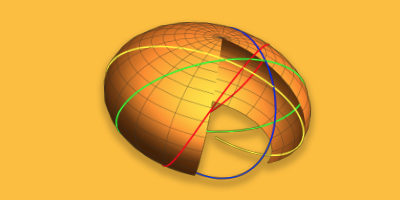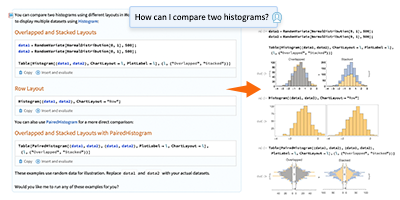New Wolfram Technologies Books
What do genealogy, linear algebra, and the Raspberry Pi have in common? Not much, but they come together in this diverse and engaging assortment of books by the international community of authors employing Wolfram technologies in their work.

Raspberry Pi for Dummies, second edition
The second edition of Sean McManus and Mike Cook’s collaborative book is a comprehensive guide to this exciting technology, fully updated to align with the Rev 3 board. Veteran technology authors provide expert insight and guidance that get you up and running fast, no matter your skill level, allowing you to explore the full capabilities of your Raspberry Pi. This updated edition includes coverage of Noobs, PiStore, and making music with SonicPi, as well as a bonus chapter all about Mathematica.
A Course in Ordinary Differential Equations, second edition
Stephen A. Wirkus and Randall J. Swift’s updated second edition teaches students how to use analytical and numerical solution methods in typical engineering, physics, and mathematics applications. Lauded for its extensive computer code and student-friendly approach, the first edition of this popular textbook was the first on ordinary differential equations (ODEs) to include instructions on using Mathematica and other computing programs. This second edition reflects the feedback of students and professors who used the first edition in the classroom and includes improvements to the Computer Labs, linear and nonlinear systems material, and expanded projects in each chapter.
Special Integrals of Gradshteyn and Ryzhik: The Proofs – Volume I
This volume by Victor H. Moll provides self-contained proofs of a variety of entries in the frequently used table of integrals by I.S. Gradshteyn and I.M. Ryzhik. It collects 15 papers from Revista Scientia covering logarithmic integrals, the gamma function, trigonometric integrals, the beta function, the digamma function, the incomplete beta function, Frullani integrals, and various combinations. The book gives the most elementary arguments possible and uses Mathematica to verify the formulas. Readers discover the beauty, patterns, and unexpected connections behind the formulas.
Applied Differential Equations: The Primary Course
Written by Vladimir A. Dobrushkin, this book presents a contemporary treatment of ordinary differential equations (ODEs) and an introduction to partial differential equations (PDEs), including their applications in engineering and the sciences. Designed for a two-semester undergraduate course, the text offers a true alternative to books published for past generations of students. It covers traditional material, along with novel approaches to mathematical modeling that harness the capabilities of numerical algorithms and popular computer software packages such as Mathematica. Many examples and exercises help students master effective solution techniques, including reliable numerical approximations.

The Linear Algebra Survival Guide: Illustrated with Mathematica
Fred Szabo’s Survival Guide is a reference book with a free downloadable Mathematica notebook containing all of the interactive code to make the content of the book playable in Mathematica and the Wolfram CDF Player. It offers a concise introduction to the core topics of linear algebra, including numerous exercises that will accompany a first or second course in this subject. This book will guide you through the powerful graphic displays and visualization of Mathematica that make the most abstract theories seem simple—allowing you to tackle realistic problems using simple mathematical manipulations.
Guide to Wolfram|Alpha for Genealogy and Family History Research
Most genealogists and family historians these days are familiar with a variety of search engines used to locate information on the internet. But what if there were a search engine that allowed queries in the form of a question and, in fact, preferred that format? And what if you could take the concept one step further and have this answer engine also calculate information based on set input parameters? Well such a search engine does exist: Wolfram|Alpha. Thomas MacEntee’s guide demonstrates that what sets this computational knowledge engine apart from other search engines is the ability to pull curated data from external sources. This text provides a guide for how best to employ Wolfram|Alpha in genealogy research.
Precalculus eText with MyMathLab
This new precalculus eText by Eric Schulz, William Briggs, and Lyle Cochran, executed with Mathematica, strengthens the connection between precalculus and calculus in a way that’s never been done before. The eText seamlessly integrates narrative text, interactive figures utilizing Wolfram CDF technology, and instructive author videos to immerse students in a rich learning environment.
Applied Mathematical Softwares: Mathematica
In this book from Mehrzad Ghorbani, there are many beautiful, simple, and basic mathematical problems from a range of sources including calculus, number theory, ordinary differential equation, numerical analysis, linear algebra, and complex variables. Undergraduate and graduate level students and professors of science and math will find this text applicable to their courses, as well as some high school level studies. This book contains more than 10 years of experiments of teaching mathematics software and Mathematica code in Iranian universities (southeast of Iran) to both bachelors and masters of science in mathematics, physics, and engineering.



The 2e of Raspberry Pi For Dummies is a great little book. The bonus chapter on Mathematica is available as a free download on the publisher’s webpage: http://www.wiley.com/WileyCDA/WileyTitle/productCd-1118904915.html . When running Mathematica, performance on the 1GB memory 4-core processor is ~10x of the original Raspberry Pi.
In the early 1980s, VisiCalc was a compelling application for the Apple II computer (see http://apple2history.org/history/ah18/#07 ). Today, Mathematica is a compelling application for the Raspberry Pi 2. Getting a Pi 2, this book, and and installing the free Mathematica edition is a great way to start young explorers in this beautiful world.
Hey Jenna,
Thanks for putting together this post on wolfram technologies books .It is a great read. I particularly find your thoughts about the books content really interesting.
Keep up these insightful posts.
Cheers!